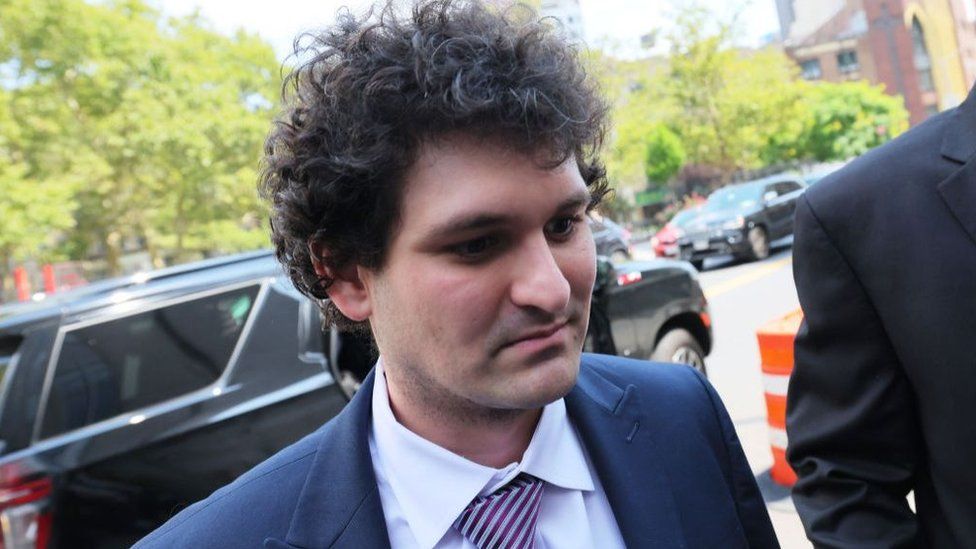Sam Bankman-Fried, who was arrested on fraud charges last year after the collapse of his crytocurrency firm, must await trial behind bars, a US judge has ordered.
Judge Lewis Kaplan agreed with prosecutors that the move was necessary to prevent him from interfering with the trial process.
Prosecutors had accused him of trying to intimidate witnesses expected to testify against him.
He has denied the claims.
The hearing on Mr Bankman-Fried’s bail came ahead of trial, which is scheduled for October.
The 31-year-old is accused of misusing money from investors and customers of this bankrupt cryptocurrency exchange FTX to pay for property, political donations and plug losses at his hedge fund, Alameda Research.
The former billionaire denied the claims and was released to his parents’ home in Palo Alto, California on a $250m (£197m) bond.
The court had already moved to tighten restrictions faced by Mr Bankman-Fried earlier this year, citing his efforts to contact people involved in the case and his use of a virtual private network.
The latest request from prosecutors was sparked by a July article in the New York Times, which quoted confessional writings by Caroline Ellison, Mr Bankman-Fried’s sometime girlfriend and the former chief executive of the hedge fund he founded, Alameda Research.
In the article, Ms Ellison, who pleaded guilty to fraud last year and is expected to testify against Mr Bankman-Fried, was quoted reflecting on their break-up and how she felt “overwhelmed” at work.
Prosecutors said Mr Bankman-Fried had shared the documents to try to make his case in the media that Ms Ellison was a “jilted lover” who had worked alone.
They also argued that it would have a chilling effect on other potential witnesses because it could make them fear “personal humiliation and efforts to discredit their reputation” beyond what would be permitted in court.
His attorneys said he had shared documents that were already known to the reporter and had a right to speak to the media. They also said sending Mr Bankman-Fried to jail would hinder trial preparations.
